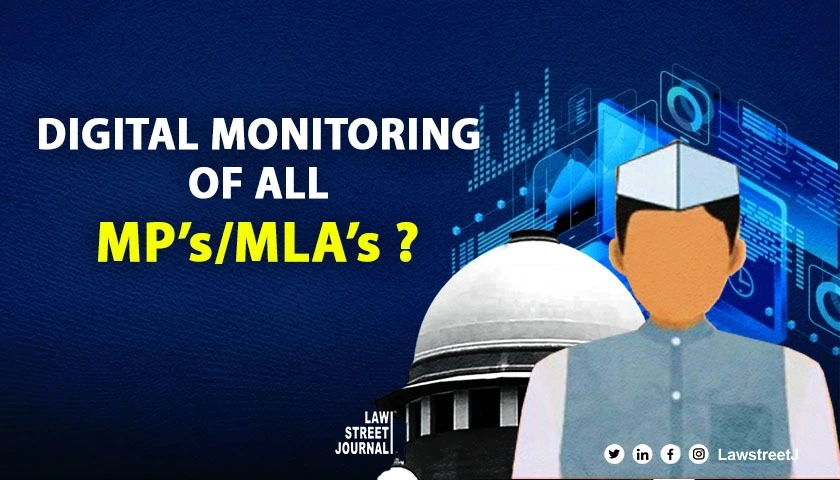NEW DELHI: The Digital Personal Data Protection (DPDP) Act of 2023 marks a significant milestone in the evolution of data privacy laws, introducing comprehensive measures to ensure the protection of personal data in the digital age. This article analyzes the Act's impact on data privacy, enforcement mechanisms, and balance between individual rights and regulatory compliance. We'll focus on the rights and duties of Data Principals, as well as the obligations of Data Fiduciaries and Data Processors in Sections 11-15.
The DPDP Act of 2023 prioritizes individual privacy and autonomy over personal data. It outlines Data Principals access, correction, and deletion rights, Data Fiduciaries and Processors responsibilities, and grievance redressal mechanisms.
Rights of the Data Principal
Right to Information and Access (Section 11)
Section 11 of the data protection law gives individuals the right to request and receive a summary of their personal data that is being processed, along with the reasons for its processing and the names of other organizations that have been given access to it. This provision increases transparency and helps individuals comprehend how their data is being used. However, the exception that permits data sharing among organizations for legal and security purposes raises concerns about the balance between privacy and public interest.
Right to Correction, Completion, and Erasure (Section 12)
This section outlines the Data Principal's entitlement to rectify any inaccuracies, complete partial data, update outdated information, and ultimately erase their data under certain conditions. These provisions are crucial in ensuring the accuracy and relevance of data, although they may introduce operational challenges for Data Fiduciaries in terms of compliance and data management.
Right to Grievance Redressal (Section 13)
According to the Act, Data Fiduciaries must set up accessible grievance redressal mechanisms to address complaints within a specific timeframe. This right is crucial for enforcing the Act's provisions and ensuring accountability. However, the efficacy of these mechanisms will depend on how they are implemented and the responsiveness of Fiduciaries.
Right to Nominate (Section 14)
Section 14 of the data privacy legislation acknowledges the significance of data rights that extend beyond the lifetime or ability of the individuals concerned. It enables the nomination of representatives to exercise these rights in cases of incapacity or posthumously. This provision highlights the persistent nature of data privacy rights and necessitates considerations for estate and incapacity planning.
Duties of the Data Principal (Section 15)
The Act focuses on the rights of Data Principals and outlines their obligations. These duties include observing applicable laws, providing authentic data, and avoiding false complaints. The Act highlights the mutual character of data protection, with individuals having a role in securing their data and maintaining the integrity of the data ecosystem.
Analysis and Implications
The DPDP Act of 2023 establishes a strong legal framework for protecting data, in line with global privacy standards. Its focus on individual rights demonstrates a commitment to empowering individuals while considering the complexities of managing digital data. However, the success of the Act relies on the effective implementation of its provisions, the ability of Data Fiduciaries to adapt to the requirements, and the establishment of a vigilant regulatory body to enforce compliance.
Also Read - Digital Personal Data Protection Act 2023 Navigating India's Data Privacy Revolution [Read DPDP Act]
Furthermore, the Act's exemptions and the discretion granted to Data Fiduciaries in certain contexts warrant careful scrutiny to prevent misuse or overreach. The balance between privacy rights and regulatory or security interests represents a delicate equilibrium that will likely evolve as the Act is put into practice.
The DPDP Act of 2023 represents a forward-looking approach to data privacy and protection. By articulating clear rights for Data Principals and delineating the responsibilities of Data Fiduciaries, the Act provides a comprehensive legal framework aimed at safeguarding personal data. As digital landscapes continue to evolve, ongoing analysis and potential amendments will be essential to ensure that the Act remains effective in protecting privacy rights in an increasingly data-driven world.
Also Read - What is Forensic Audit: Know India's Legal Framework for Combating Financial Crimes








![Digital Personal Data Protection Act 2023 Navigating India's Data Privacy Revolution [Read DPDP Act]](/secure/uploads/2024/03/lj_9918_1567ef1e-c951-42eb-a4f7-c879750e1186.webp)







